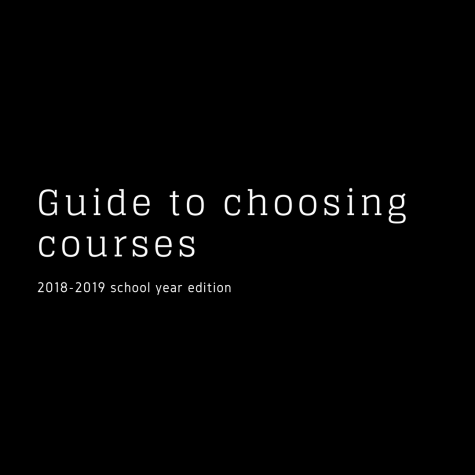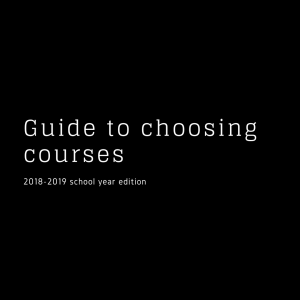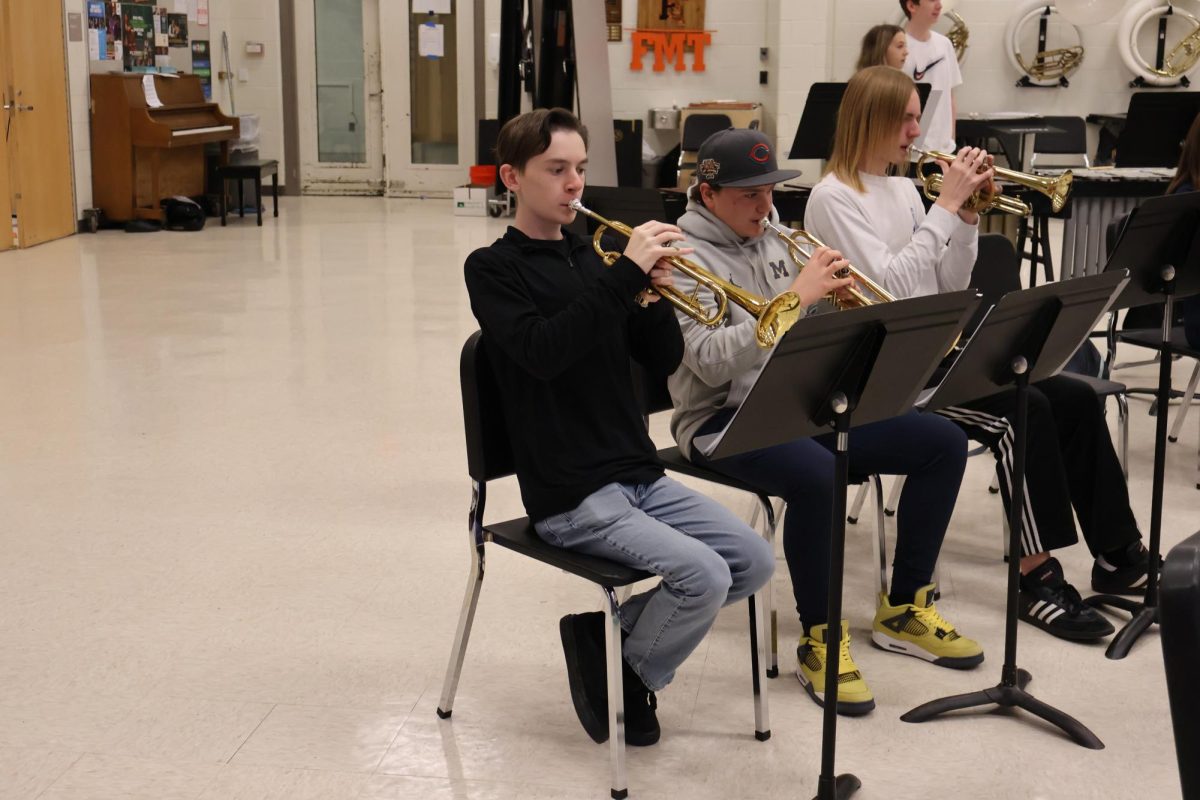Phones during class impact academic ability
November 20, 2017
Trudging through the school day can cause difficulty for phone users as they plan out the next time to check their phone. With this constantly going through the minds of teenagers during school hours, academic concentration and performance gradually decreasing. For phone users, this thought process has stemmed from an addiction, an addiction to their phone.
“What I see are people who are disengaging from their lives, people focus more on their phones,” History Teacher Patricia Gray said. “I see it as damaging our connections to each other. The more we don’t talk to people around us, the less empathy and understanding we have for one another.”
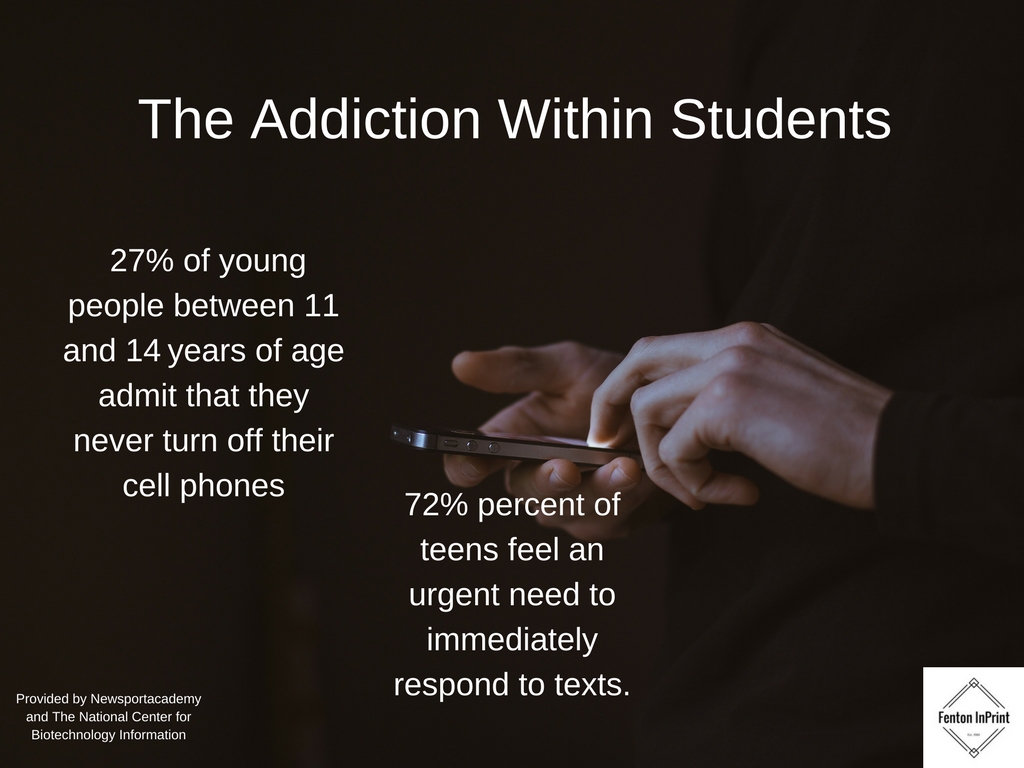 For many students, their phone is always in sight and causing temptation. The temptation including trying to send a text or watching a television show while completing a homework assignment. Studies conducted from the Harvard Business Review Blog Network show that multitasking reduces productivity by 40 percent. That’s a ten point fall in IQ as students execute more energy into their phones then into their work.
For many students, their phone is always in sight and causing temptation. The temptation including trying to send a text or watching a television show while completing a homework assignment. Studies conducted from the Harvard Business Review Blog Network show that multitasking reduces productivity by 40 percent. That’s a ten point fall in IQ as students execute more energy into their phones then into their work.
“Even in a lecture situation, students cannot seem to separate priority and what is important,” Math Teacher Sarah Sahr said. “I think we become very reliant on our phone and it takes away from our focus.”
Regardless of whether the phone is in the hands of the students, the sounds of notifications can abruptly go off by a ring or buzz at any point drawing attention to the source of the disturbance. This allows students to leer their study away from the lesson, which in these cases, teachers may find difficulty in gaining back student attentiveness.
“Even if they’re physically not on it, the sounds of things coming in are distracting,” Sahr said. “We do not really know how to let the sounds go, as soon as we know that something is there, we have to know what’s happening. We can’t seem to get past that.”
With cell phones becoming one of the main sources of communication, students are now becoming more dependant on phones instead of strengthening their direct conversational skills with another person. Face to face dialogue is gradually being replaced with texting, direct messaging or snapchats.
“Kids are less able to communicate with you one on one interpersonal,” Andrew G. Schmidt Social Studies Teacher Don Kutchey said. “Kids are more with drawn or look you in the eye. They have lost a lot of social skills.”
With all the drawbacks, there are some valuable attributes to the cell phone that can be resourceful in a learning environment. With instant access to a online resources such as google, students have the ability to look up any question that is unknown in their classroom. This completely differs from the process of having to spend minutes flipping through pages of a textbook looking for the answer, saving important class time.
“It is nice to be able to look things up instantaneously. If a kid asks me a question and I do not know the answer, I will tell him to look it up,” Kutchey said. “I think if you can use it in the right way, it is definitely a positive. There are drawbacks though, the issue is it is a major distraction if not policed in the right way. Educators need to be more consistent with how they enforce the phone rules. From class to class, the policy is different. ”
As schools are adapting and more policies are needed to be imposed on rules and guidelines concerning the use of cellphones. On example including the poster that can be seen in the bathroom restricting the use of taking photos. The issue of enforcing such policies is consistency. Each teacher has a different opinion in the amount of restriction for phone usage in their classroom.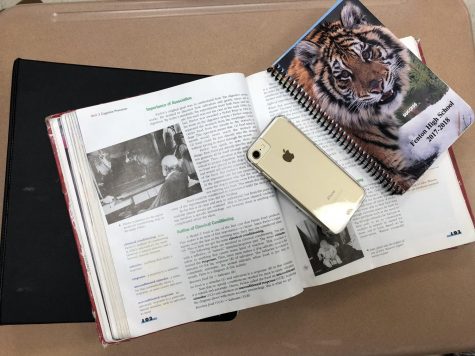
“In some classes, teachers do not allow me to have my phone out for any reason, while other let me use it freely,” sophomore Colin Brawner said. “It also depends on what we are doing in class that day, if it is a test day we are not allowed to be on our phones, but if it is average day most times there are no restrictions.”
Without cell phones as a distraction, students have the ability to better learn in a school setting, despite the potentially beneficial attributes. More changes may be implemented into classroom policies in the near future.

